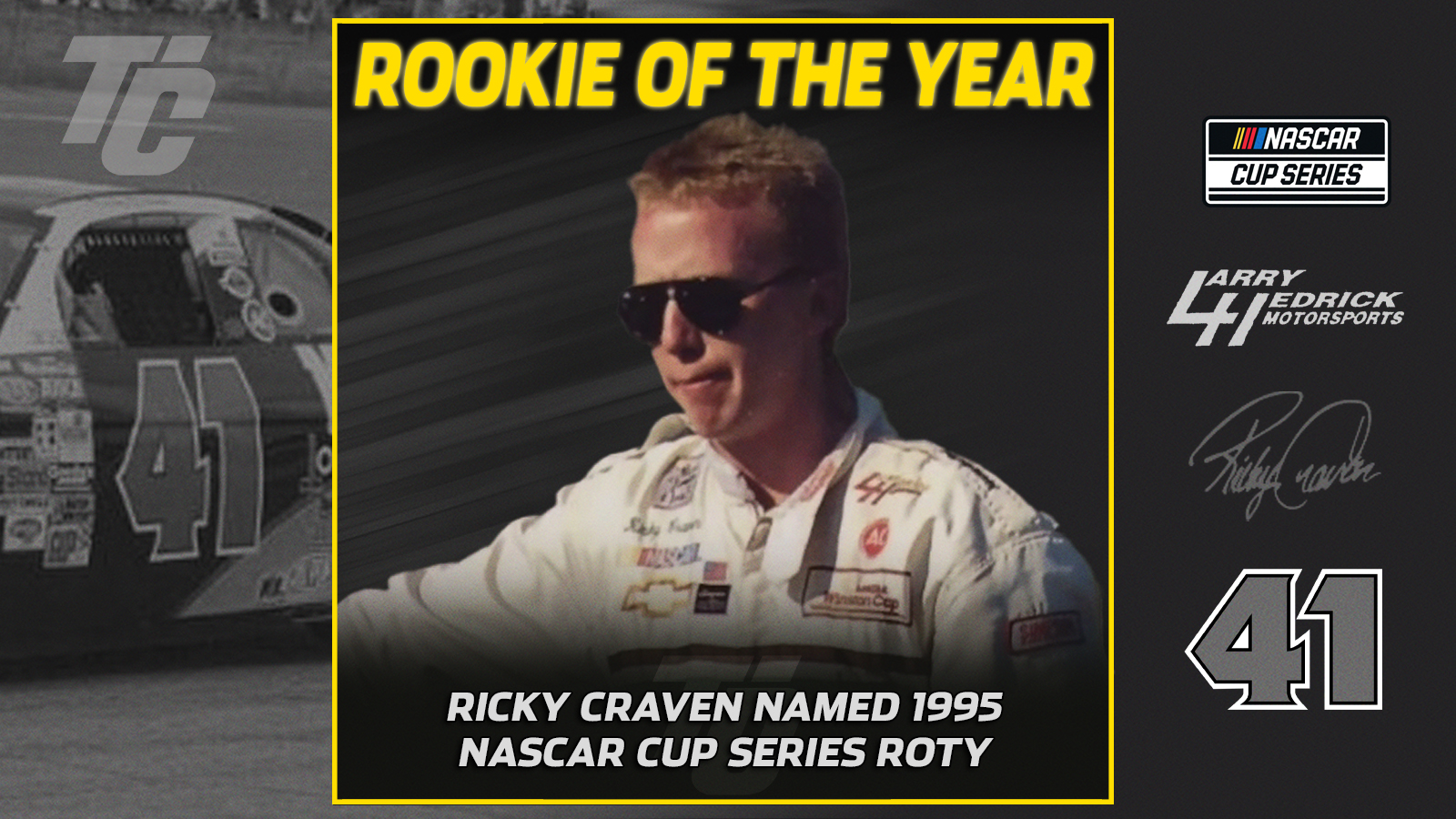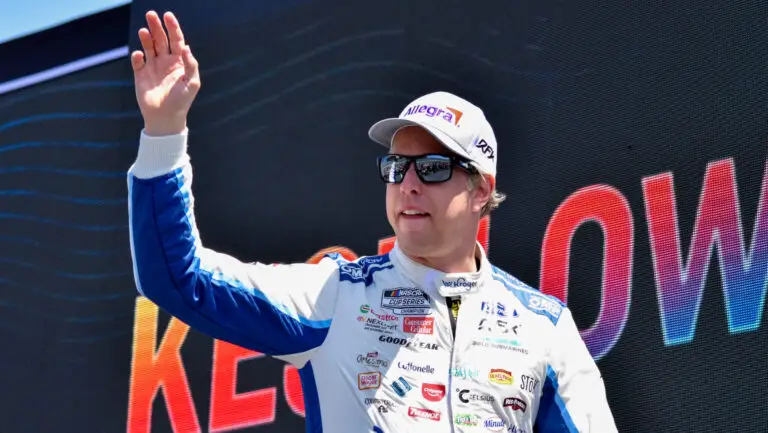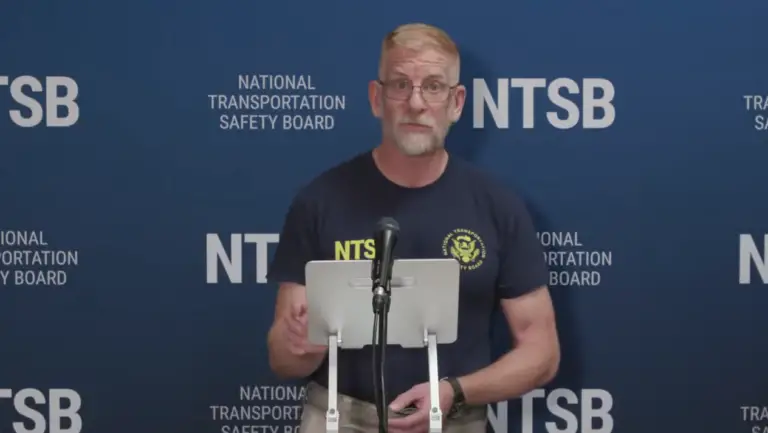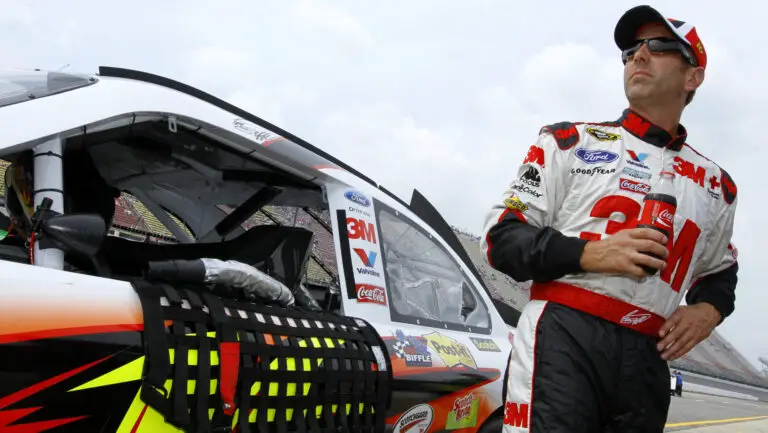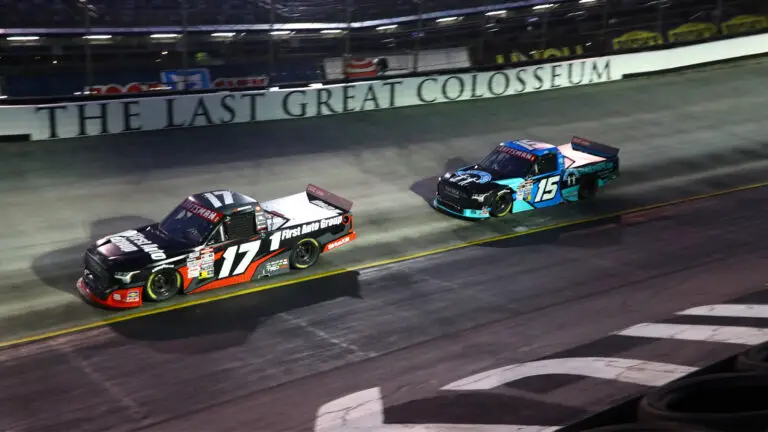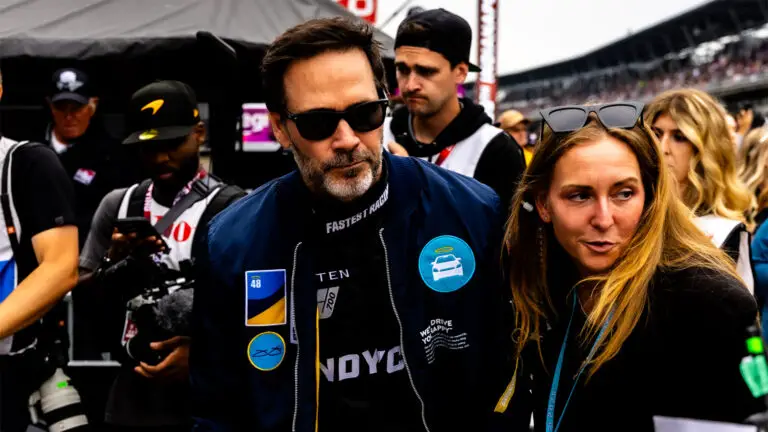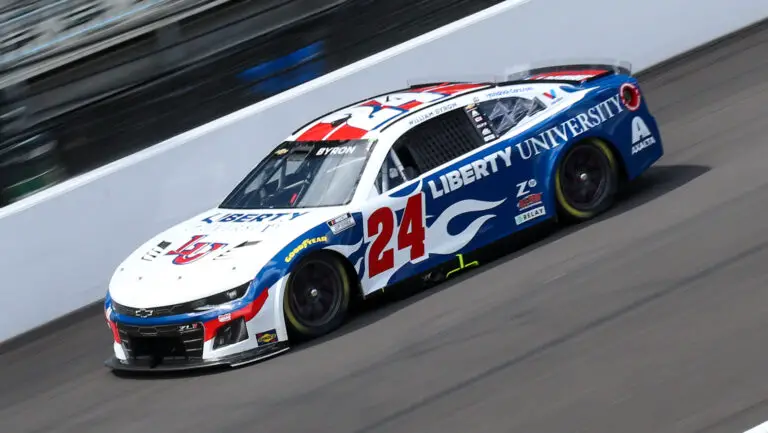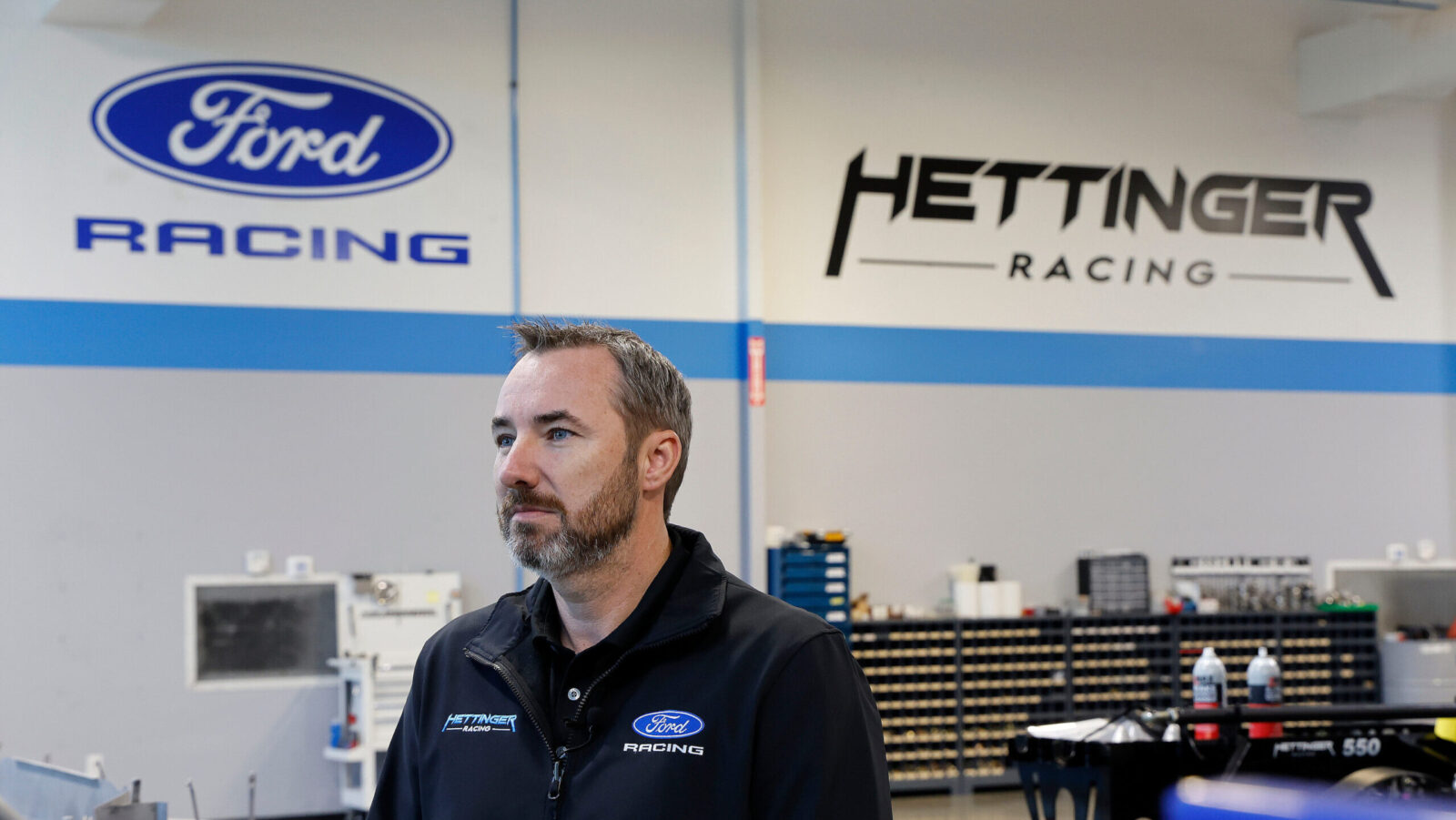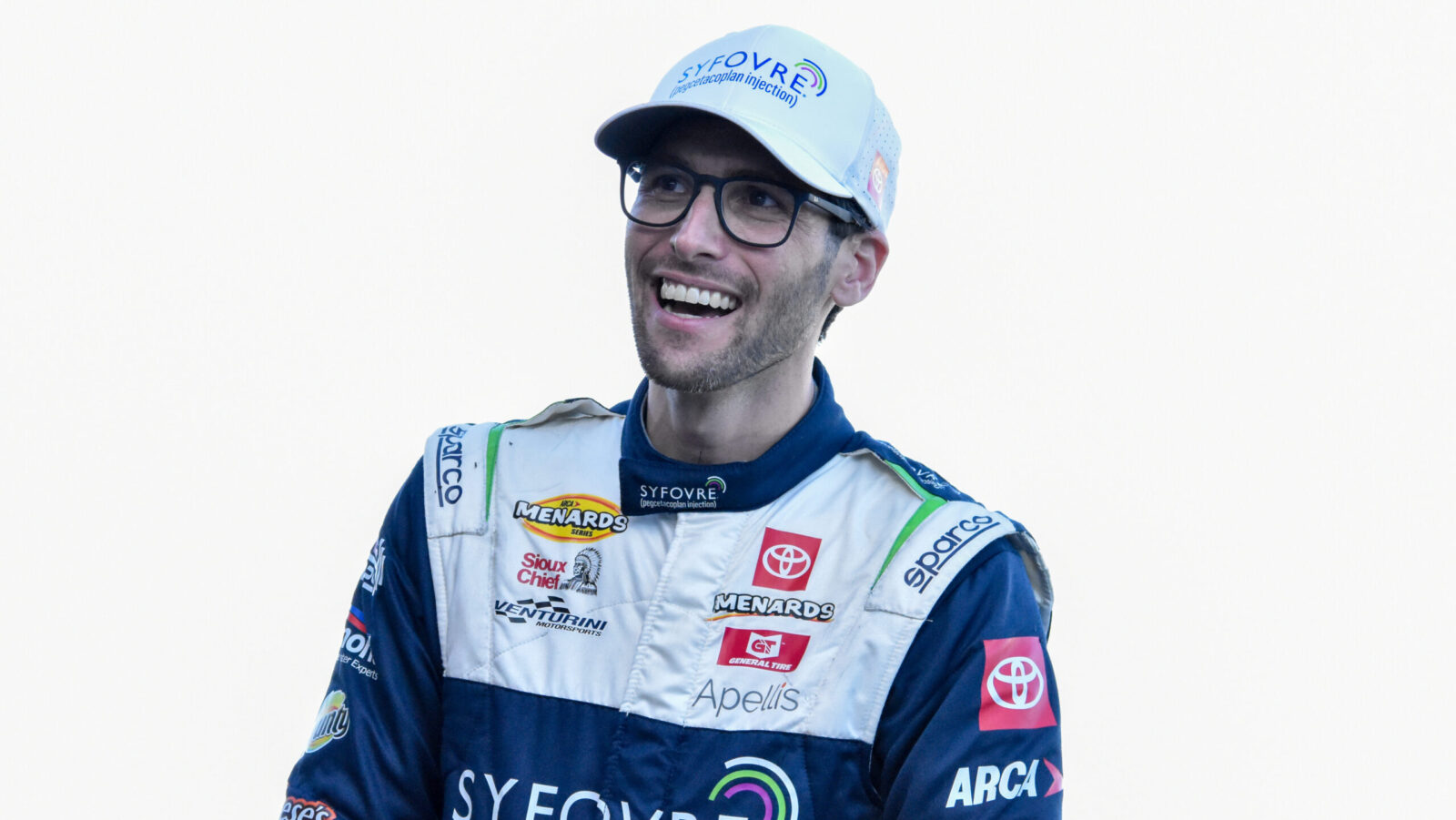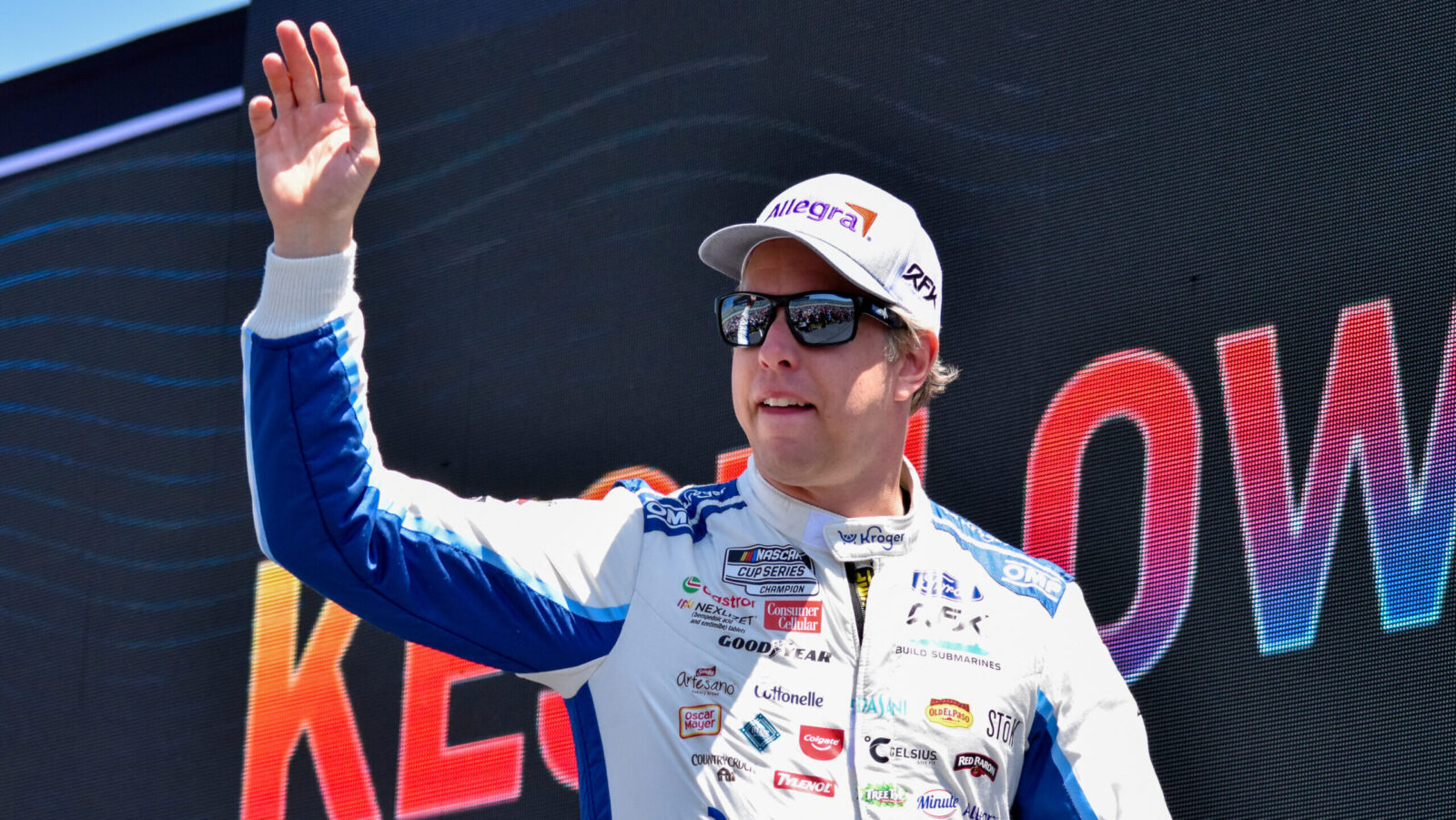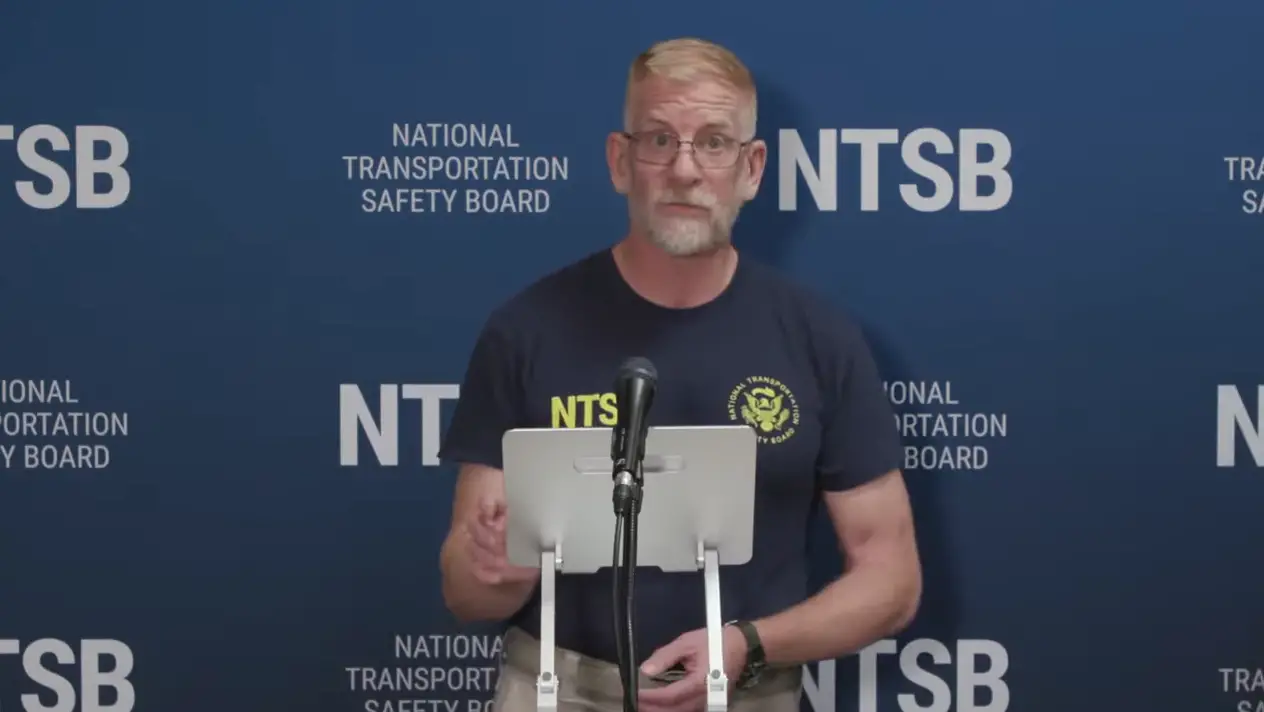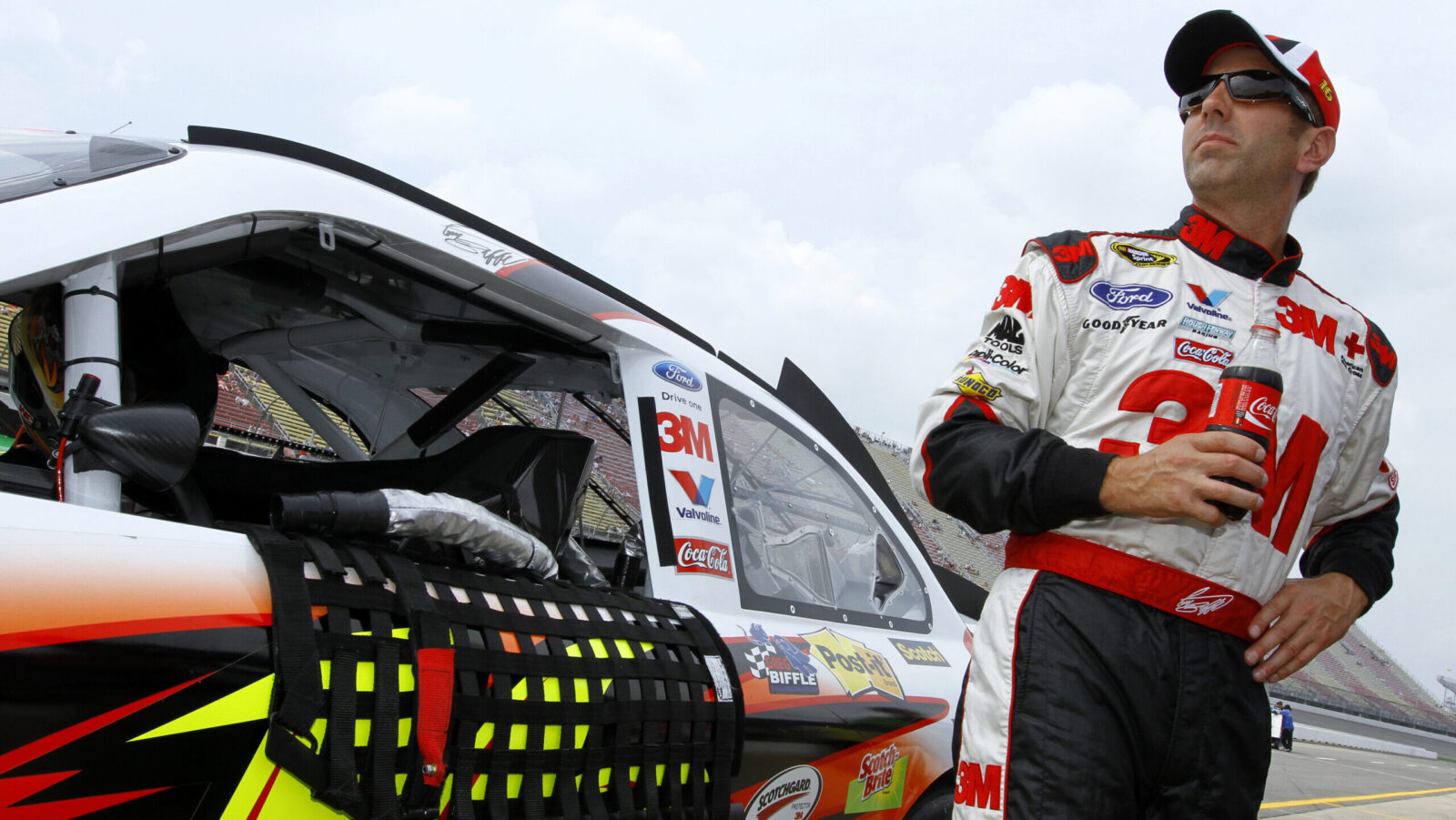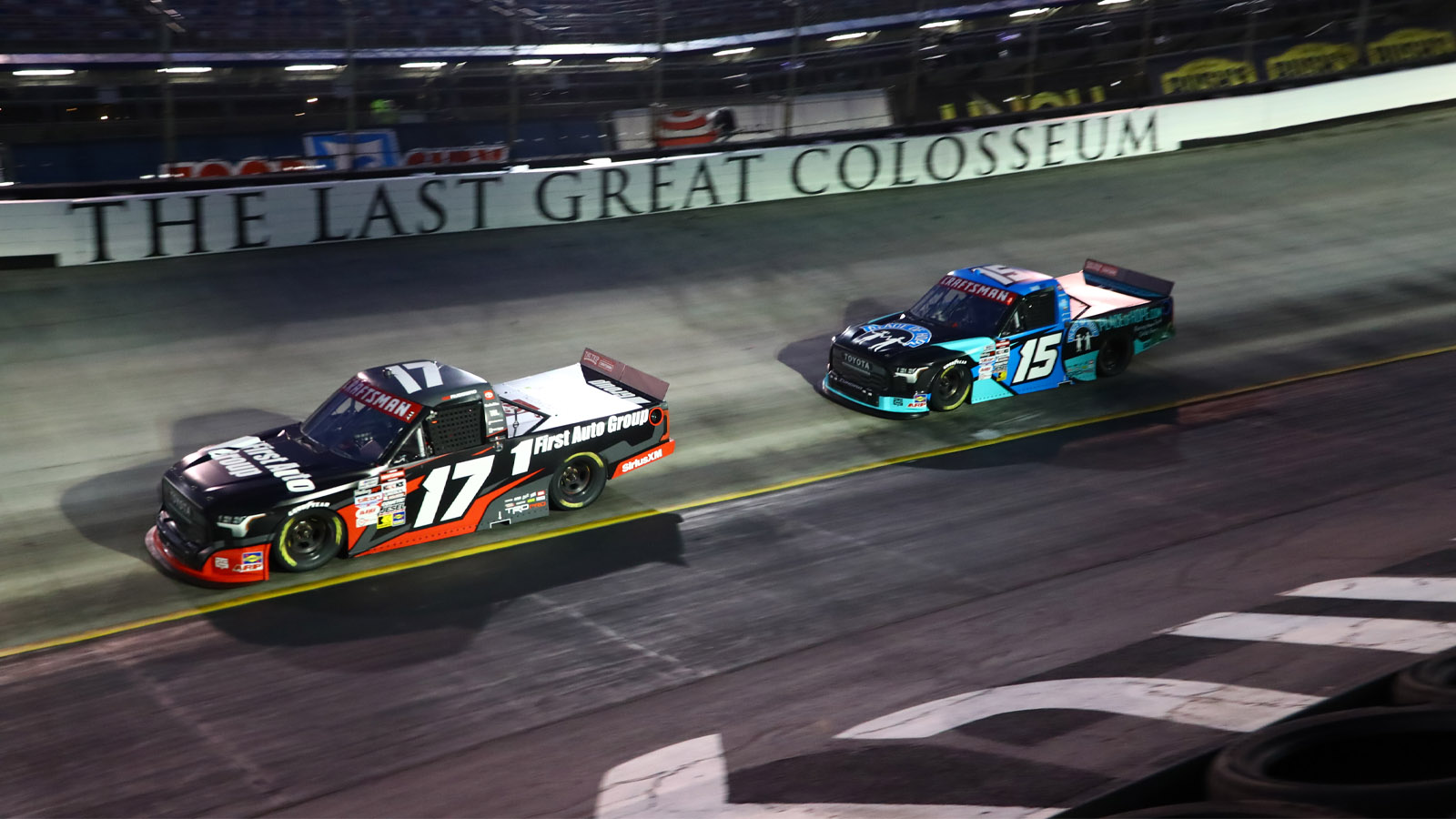Ricky Craven was named the 1995 NASCAR Cup Series (then Winston Cup Series) Rookie of the Year by a thin 13-point margin over Robert Pressley in a spirited battle all season long. Craven ended the season with 255 rookie points to Pressley’s 242.
“Obviously, we had a lot of goals coming into this season,” Craven said in an interview in the 1996 NASCAR Preview and Press Guide. “We wanted to consistently run in the top 15 and get a few top-10 finishes under our belt and basically get better as the season went along. In doing that, we believed, or at least hoped, we would have a good shot at being the top rookie at the end of the season.”
Craven, a native of Newburgh, Maine, recorded four top-10 finishes over 31 starts during the 1995 season, his best finish being a seventh-place effort in the GM Goodwrench Dealer 400 at Michigan International Speedway.
The 29-year-old racer led six laps in the season and recorded an average finish of 23.6. Craven ended the year 24th in the NASCAR Cup Series championship driver standings. Craven was the top-finishing rookie in 15 of the 31 races in 1995, while Pressley took the honor 13 times.
What made the difference in Craven taking home Rookie of the Year honors over Pressley were DNFs. Craven suffered four DNFs during his rookie campaign in the No. 41 Larry Hedrick Motorsports Chevrolet Monte Carlo. Pressley endured seven DNFs in the No. 33 Leo Jackson Motorsports Chevrolet Monte Carlo.
Heading into the final race of the season at Atlanta Motor Speedway, Craven had yet to lock up the Rookie of the Year Award, but a blown engine for Pressley, which resulted in a 41st-place finish sealed the deal for Craven.
Final 1995 NASCAR Cup Series Rookie of the Year Standings
| Pos | Car | Driver | Points | Behind | Next | Race Wins |
|---|---|---|---|---|---|---|
| 1 | 41 | Ricky Craven | 255 | Leader | - | 0 |
| 2 | 33 | Robert Pressley | 242 | -13 | -13 | 0 |
At the end of the season, Pressley lamented the fact that he felt he showcased more raw speed throughout the season than Craven, but ultimately missed out on Rookie of the Year because of the lack of finishing races out.
“We had a better qualifying year than Ricky did, but, unfortunately, that doesn’t figure into the rookie points,” Pressley said. “We also led some races this year. They weren’t during cautions either; they were legitimate moves of taking the lead on green-flag runs on several different kinds of tracks — Martinsville, New Hampshire, Daytona, and Talladega. So we’re proud of that. But we just weren’t able to finish as high in some races as Ricky did. He took advantage of that.”
While the Rookie Battle of 1995 took its toll on the relationship between the two drivers, Craven said that he and Pressley did eventually bond through the experience.
“We both had our ups and downs during the season,” Craven explained. “But we went through a lot of them together. Robert and I became really good friends through the deal. Being rookies was tough enough and we definitely weren’t going to add any more pressure to ourselves by making it a bitter rivalry.”
At the end of the tense battle, Robert’s brother Charley, who had served as his crew chief in 1995, moved to Craven’s team for the 1996 season as Andy Petree moved from Dale Earnhardt’s No. 3 Richard Childress Racing team to be Robert Pressley’s crew chief.
While the battle for the 1995 NASCAR Cup Series Rookie of the Year came down to Craven and Pressley, who ran the full season, six other drivers initially declared for Rookie of the Year at the beginning of 1995. None of the six drivers ran the 15 races required to be eligible to win the Award.
Randy LaJoie and Davy Jones competed in more than five races in 1995, which caused both drivers to officially lose their Rookie of the Year eligibility in future seasons. Steve Kinser, Mike Chase, Gary Bradberry, and Terry Byers ran less than five races each, which allowed these drivers to maintain Rookie of the Year eligibility for future seasons.
Elton Sawyer, who did not declare for Rookie of the Year honors, competed in 20 races during the season. By running more than five races, Sawyer lost his future eligibility to compete for NASCAR Cup Series Rookie of the Year.


